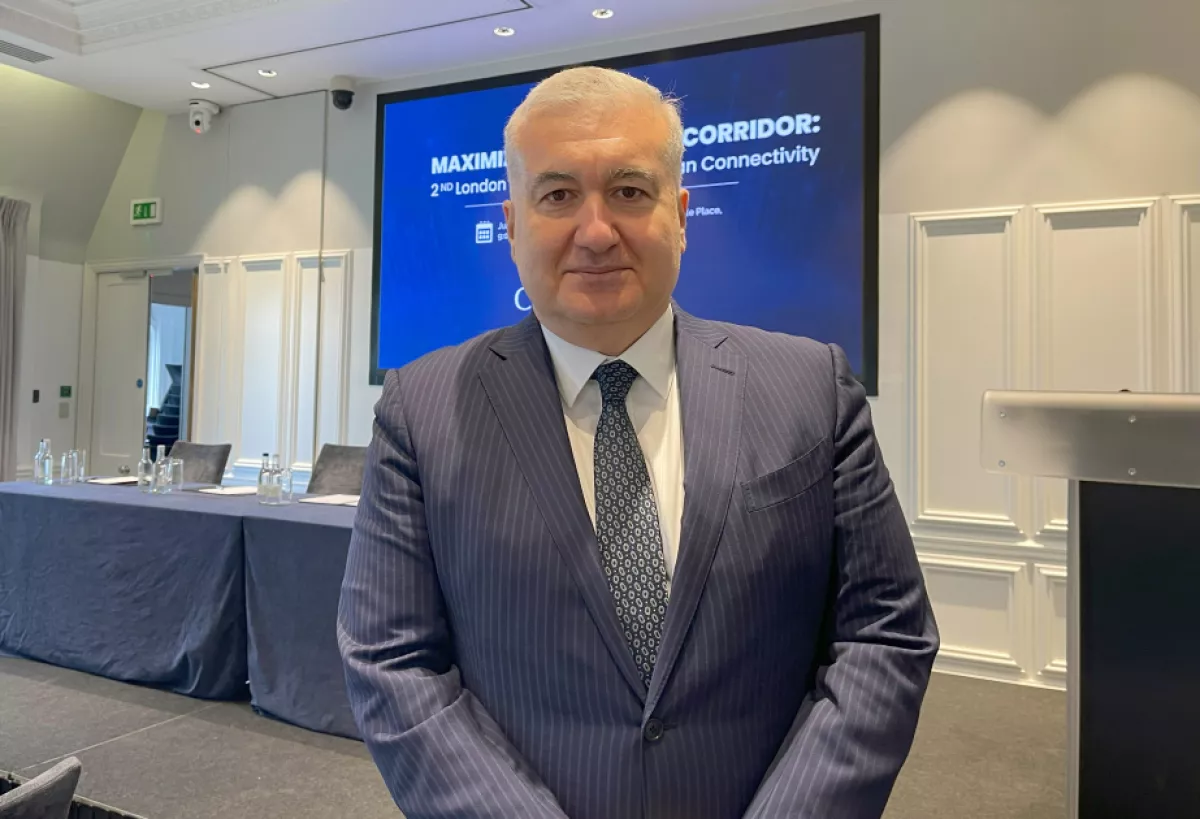For peace in the Caucasus, we must look forward, not back Azerbaijani envoy’s article in The Telegraph
The British newspaper The Daily Telegraph has published an article by the Ambassador of Azerbaijan to Great Britain, Elin Suleymanov, dedicated to Azerbaijani-Armenian relations. Caliber.Az reprints the piece.

Since Azerbaijan’s liberation in 2020 of its internationally recognised territories from three decades of Armenian occupation, our region has witnessed dramatic change. For the most part, the transformation of the South Caucasus has been towards lasting peace and deepening connectivity. Just as Azerbaijan has been championing regional cooperation and energy security, it was the Azerbaijani side that put forward the main principles for the peace agreement with Armenia shortly after hostilities ended.
Let me reiterate this point: having secured a decisive military advantage, Azerbaijan offered a peace treaty and normalisation of relations with Armenia, including the reopening of transport and communications. Armenia, on the other hand, has for the last five years stalled on implementing its commitments made in writing, delaying the peace process. Indeed, the text of the agreement – only finalised recently – is based on the very same terms Azerbaijan offered earlier and to which Armenia did not agree until recently.
The agreement on the final text is an important milestone in itself as it underscores the success of direct talks between the parties without external interference – the ineffectiveness of which was exemplified by the dysfunctional OSCE Minsk Group, now defunct in all but name. Hopefully, this also reflects the growing realisation in Armenia that building peaceful and mutually beneficial relations with neighbours requires a responsible approach rather than succumbing to jingoistic and ideological fantasy.
Of course, the text of an agreement is not alone sufficient to engender lasting peace. Let us just recall the 1994 Budapest Memorandum signed by the U.K., among others, offering Ukraine all the things it desperately needs but cannot have today.
Azerbaijan sincerely seeks normalisation with Armenia and long-term security in our region. But Armenia’s own Constitution, which even now still essentially calls for the annexation of Azerbaijani lands, remains a key obstacle. Simply put, the provisions in the agreement text on mutual respect for territorial integrity and sovereignty are in direct contradiction with Armenia’s Constitution. Incidentally, vocal Armenian political forces opposed to any peace with Azerbaijan whatsoever continue to make territorial claims to our internationally recognised land – and point to their constitution as justification.
Fortunately, even the most zealous Armenian nationalists seem to be finally recognising that this narrow, ethnicity-driven political agenda has been the root cause of the constant conflict and consequently, the primary impediment to their country’s growth. Even the Armenian Prime Minister Nikol Pashinyan has acknowledged that Azerbaijan’s liberation of its lands has given Armenia the opportunity to now focus on its own sovereignty as well as greater room for manoeuvre on foreign policy.
However, for Armenian political groups abroad, reality is just a minor obstacle in their never-ending quest to attack Azerbaijan and Türkiye, as well as to retain their own, otherwise questionable, relevance. Increasingly, in their pursuit of an ideological agenda, the state of Armenia is becoming an instrument rather than the objective.
They are not alone in their pursuit of relevance at any cost: a number of Western politicians also appear unwilling to acknowledge any positive development. Take, for instance, Lord Alton, a British Peer, who spends an alarming amount of time attacking Azerbaijan and rejecting any progress on peace.
In his latest offering, without naming him he speaks on behalf of one Ruben Vardanyan, the ethnic Armenian oligarch parachuted illegally into Azerbaijani territory from Moscow to act as leader of the separatists. Lord Alton conveniently omits that Mr Vardanyan has been sanctioned by Ukraine for his support of war and that he openly directed acts of violence against Azerbaijan. With no legal expertise to speak of, Alton calls Vardanyan and others facing trial in Azerbaijan “unjustly held,” despite the recent decisions by the U.N. Working Group on Arbitrary Detention and the International Court of Justice, which reaffirm the opposite: that the trial is not arbitrary, there is no mistreatment of defendants, and the trial is transparent and open to the public.
This may not matter to Alton’s view of history, but it does matter to the rest of the world. To justify his advocacy for Armenia’s decades-long violation of international law, Alton invokes the cliché of Armenia being the “first Christian nation.”
Even if one disregards the questionable factual basis for such a claim, who in their right mind justifies their support for the illegal actions of a country today by the religious choices of the state that occupied the same geographical location in the fourth century AD? Do we judge modern Britain by what the Romans were doing in Londinium 1,800 years ago? Of course not. It would be absurd.
Perhaps, a better option would be to heed the late Pope Francis, who praised Azerbaijan’s culture of diversity and inclusivity during his visit to our country just under a decade ago. He called for a genuine peace between our two nations – a peace free from double standards and dividing narratives.








